This one ingredient can seriously elevate your cocktail game
At-home bartending just got more sophisticated.
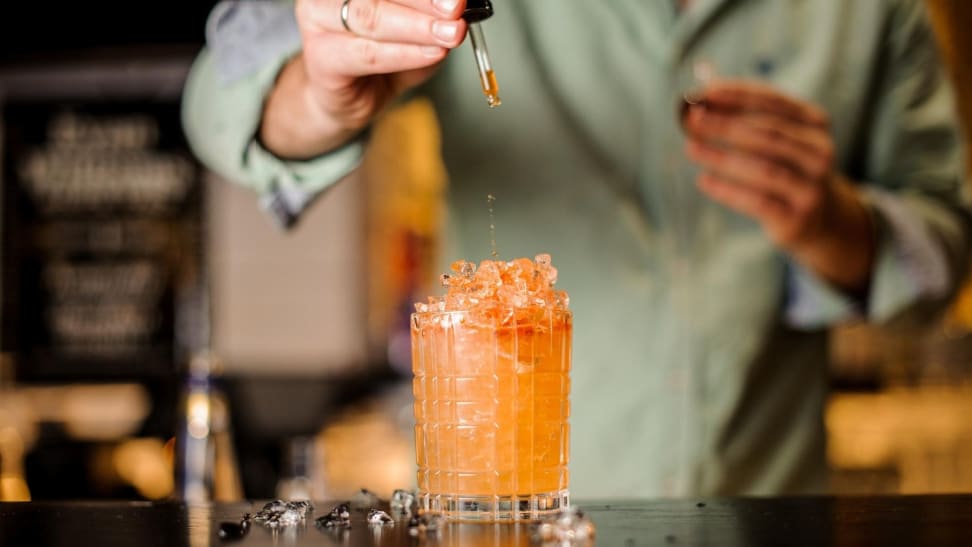 Credit:
MaximFesenko
Credit:
MaximFesenko
Products are chosen independently by our editors. Purchases made through our links may earn us a commission.
If you haven’t yet delved into the world of bitters, you may not be doing your cocktails the justice they deserve. Once all but forgotten and banished to the back of the bar, bitters are inspiring a craft movement of their own and adding a whole new level of complexity to cocktail-making.
The right choice of bitters can mean the difference between a “so-so” cocktail and a spectacular one. “They bring complexity and an aromatic element to drinks,” says Brad Parsons, author of Bitters: A Spirited History of a Classic Cure All. “They help bring together the flavors of a cocktail. Oftentimes a bartender will say if something is wrong with the drink it’s missing the bitters.”
Parsons points out that the added dimensions they can impart are important for balancing out flavors and adding depth to a drink. As they enjoy their ever-increasing popularity, due in no small part to an exploding craft movement dedicated to them, there are a dizzying number of options to choose from. Before you get overwhelmed by all of the choices available to you, it’s good to know a thing or two about them before you buy.
What are bitters anyway?
Bitters, it may surprise you, aren’t necessarily bitter, but are a class of liquor-based flavoring agents that add a potent infusion of flavor in drop-sized doses. They are generally sold in a small, medicinal-looking bottles that are a nod to their early days as herbal tonics.
Bitters have a long and storied history that hails back to the snake oil times of the 1700s. Made by infusing high-proof alcohol with botanical elements from wormwood to nuts to orange peels, they got their start as herbal tonics sold as cure-all medicinals of the time.
While their health claims may have been based in dubious marketing claims, 19th-century bartenders discovered that a few drops of these intense and often-bitter tinctures could transform and elevate their cocktails with woodsy, fruity, floral, spicy, and even nutty notes.
When you should you use bitters
Dan Scott, cocktail recipe developer and owner and founder of Fancy Free Liquor and the Whaling Club in Los Angeles, says that when it comes to adding interest and complexity to a drink, bitters are your home bar’s best friend. “They are the salt and seasoning to cocktail-making and essential to imbuing complexity in cocktails,” he says.
Bartenders now use bitters in much the same way that chefs use spices to add flavor and complexity to food. And, on that note, bitters are now making headway in cooking as well—used in baking and even meat seasonings.
“They can add sweetness, heat, umami—as companies are pushing the flavor profiles, bitters are becoming increasingly more exciting. And as they are growing in complexity, so are the ways we can use them in cocktails and elsewhere,” says Scott.
Which bitters should you try?
1. Angostura bitters
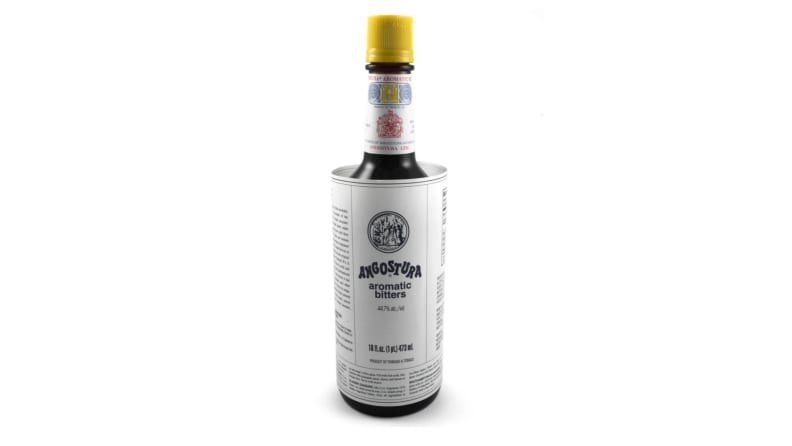
Only five people in the world know the recipe for this legendary bitters at any given time.
If you've never tried bitters, Angostura is the place to start. An indispensable bar fixture, Angostura bitters are instantly recognizable in their tiny bottle with the big oversized white label. These bitters are legendary: They are one of the oldest and most popular around and their recipe is so closely guarded that only five people know the recipe at any given time.
“I love Angostura bitters and always have a bottle at home and a bottle at the bar,” says Julia Momose, beverage developer and partner and creative director at Bar Kumiko and Kikko in Chicago. “These bitters carry a distinct baking spice note with a balance of citrus and notes of allspice.”
She points out that these flavors can be found in classic cocktails like old-fashioneds, Queens Park swizzles, and Manhattans, while Parsons says you can even use them drizzled on top of a whiskey sour.
Get Angostura Bitters at Target for $10.99
2. Peychaud's bitters
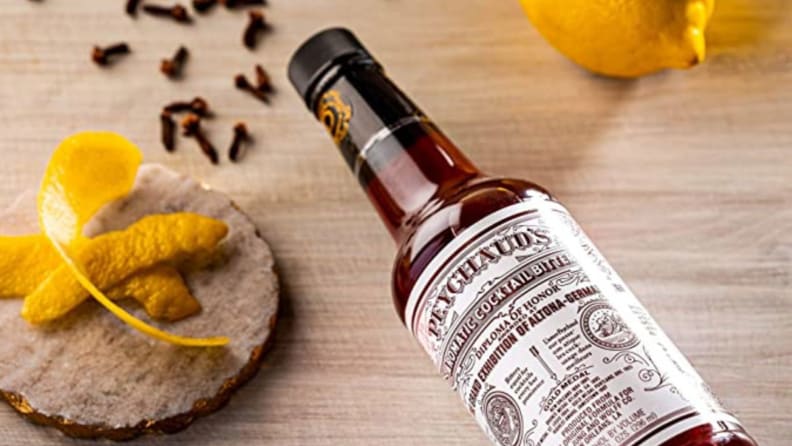
Originating in New Orleans, these classic bitters have a bit of an anise or licorice note to them.
Like Angostura, Peychaud's bitters are derived from gentian root (also an ingredient in the Italian liqueur Aperol and in the soft drink Moxie). Peychaud's is a definitive component of a Sazerac and the perfect compliment to the absinthe used in making this classic cocktail.
While Angostura and Peychaud's have a lot in common in terms of their origins, their flavors are unique to each other. Angostura melds a woodsy and citrusy flavor with notes of baking spices, while Peychaud's is lighter and fruitier and has a distinct character that tastes of anise, making it less bitter than Angostura.
“Peychaud's is completely essential for making a classic Sazerac, but it’s also really fun to experiment with in something like a Manhattan or an old-fashioned,” says Parsons. "If you try the two up against each other you’ll see that they aren’t at all interchangeable and that they both bring something different to a cocktail.”
Get Peychaud's Aromatic Cocktail Bitters at Amazon for $13.74
3. Orange bitters
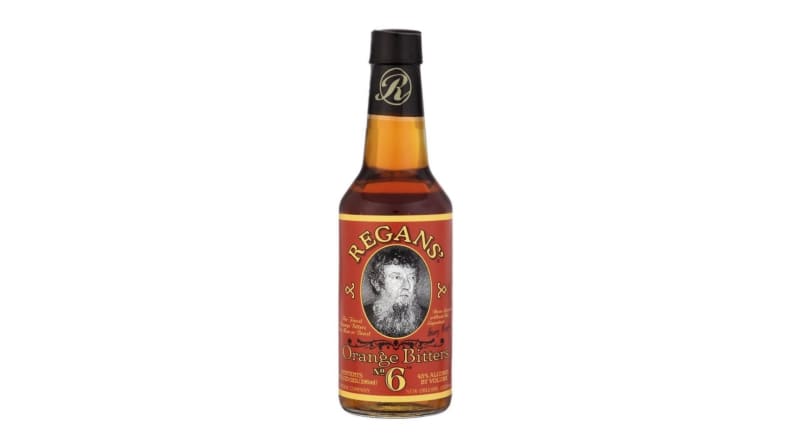
Developed by the legendary bartender and cocktail historian Gary Regan, orange bitters are enjoying a newfound popularity.
Orange bitters have been included in cocktail recipes going back over a hundred years. These days they are enjoying the attention they have long deserved. Momose recommends trying orange bitters as a breakout flavor and loves them in Sazeracs and Martinis. Indeed, the true Knickerbocker martini required a mix of orange and citrus bitters.
Get Regan's orange bitters at Amazon for $14.99
4. Citrus bitters
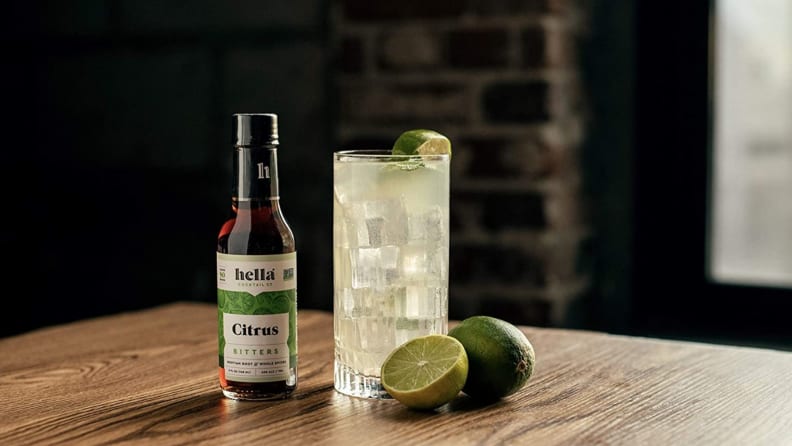
This Black-owned company out of New York is hailed for being true to the classics while also making exciting innovations in craft bitters.
If you think there is no point in having a bottle of both orange and citrus bitters in your home bar, you’d be mistaken. A few dashes of citrus bitters will add brightness to classic drinks like a whiskey sour and add a whole new dimension to drinks that you might not instinctively reach for bitters when making, like a margarita. These are also a perfect compliment to Regan’s orange bitters when making your Knickerbocker martini.
Incredibly versatile, they play well with a variety of liquids including ryes, rums, and even sherry-based cocktails. If citrus is too broad of a flavor for you, Momose recommends trying grapefruit or something more exotic like yuzu to add an unexpected twist.
Get Hella Cocktail Company's Citrus Cocktail Bitters at Amazon for $19.99
5. Chocolate or molé bitters
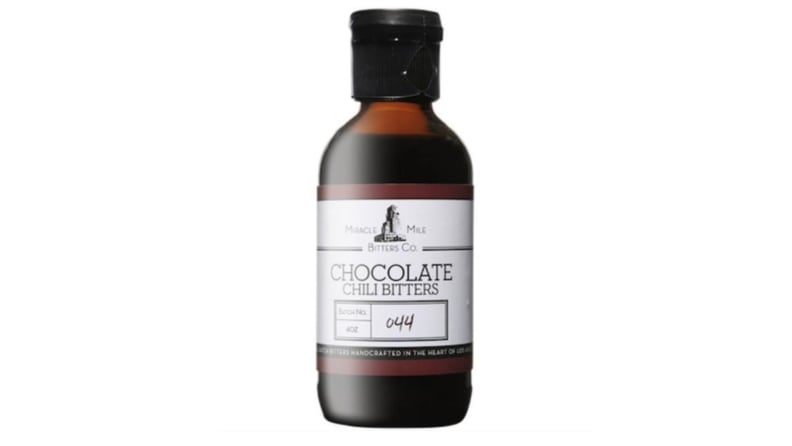
These chocolate bitters pair well with brown liquors and are a fun departure for the adventurous palate.
Chocolate bitters add a sweet, nutty flavor to drinks. They pair well with sweet vermouth and make a glorious sidekick to aged spirits like dark rums, cognacs, and bourbons. Gabrielle Dion of The Mixing Glass in Costa Mesa, California, says that chocolate bitters can be incredibly versatile, "if you’re adventurous enough" and recommends the chocolate-chili bitters from Miracle Mile.
“[They have] a small kick that is just enough but the earthiness of the cocoa keeps it grounded,” she says, noting that she likes using them herself as a surprising partner in a margarita or an unlikely match in a Jack Rose cocktail.
Get the Miracle Mile Chocolate Chili Bitters at Amazon for $39.99
6. Lavender bitters
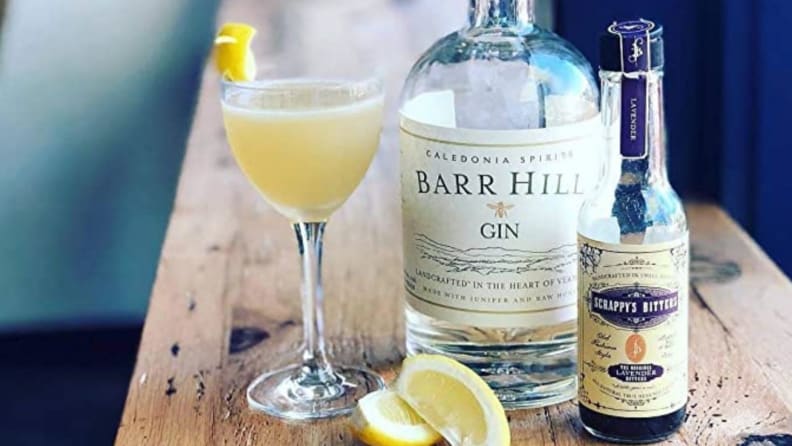
Scrappy's bitters are trailblazers in the craft bitters movement and lavender is their flagship flavor.
Scott and Momose recommend lavender as breakout bitter, for those new to the bitters world. Lavender can add a light and herbal note to cocktails and intuitively pairs with with vegetal flavors of gin, but it doesn't stop there. Lavender bitters can also give a light herbal undertone to rum cocktails.
They can add a whole new dimension to your gin and tonic, gimlet, or Champagne cocktail, but can even be a surprising addition to an old-fashioned, and we like playing with them in cocktails with a bright citrus element like fresh-squeezed lemon juice. Momose recommends you try the ones from Scrappy’s, which are heralded as the originator of lavender bitters.
Get the Scrappy's Lavender Bitters at Amazon for $21.95
7. Chili bitters
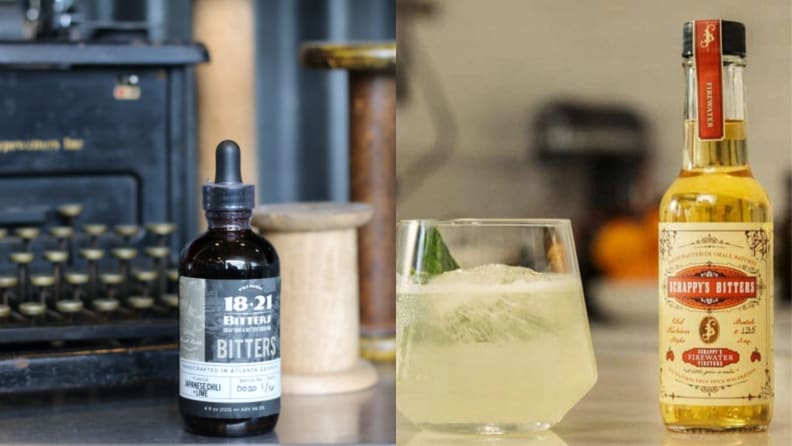
Chili bitters allow you to control the heat in your cocktails, while also adding a touch of sweetness or citrusy notes.
If you like a little kick to your cocktails, Scott recommends you give chili-flavored bitters a try. He says the reason why these types of bitters are so much fun to experiment with is they allow you to turn up the heat with tremendous control.
"This is a great way to dial on the heat without unexpectedly overpowering it, and I like that I might add three dashes for myself while I'll only add one or two for someone who wants a lighter spice. It takes the guesswork out while also adding a really nice multi-dimensional flavor," says Scott.
Not just straight hellfire juice, these bitters balance the heat of the chilis with delicate floral notes, and subtle sweetness. These are excellent for adding some oomph to your Bloody Mary's or kick to your margaritas. Scott loves the Firewater bitters from Scrappy's while Lynnette Marrero, co-founder of Speed Rack and mixology educator for MasterClass, recommends the Japanese Chili and Lime bitters from 18.21. We see no reason not to try both!
- Get the 18.21 Japanese Chili and Lime Bitters at Amazon for $34.99
- Get Scrappy's Firewater bitters at Amazon for $18.99
8. Cherry vanilla bitters

Bittercube's Cherry Bark Vanilla bitters have a woodsy yet warm element to them.
If you want to add a rounder and warmer flavor to your old-fashioned or Manhattan, both Momose and Marrero recommend the cherry vanilla bitters from Bittercube. These are made with wild cherry bark, Indonesian vanilla bean and have added elements of star anise, cardamom, cinnamon, and fennel pollen, making them both woodsy and aromatic. These are versatile and add a softly fragrant element to your drinks.
The Bittercube website recommends using these with gin, but we are excited about pairing with them with mezcal. "They are an enticing bitters to try in cocktails with aged spirits as the profile of cherrywood and vanilla are often called out as tasting notes in barrel aged spirits. The bitters do a brilliant job of pulling out these notes, while adding a touch of star anise to the mix," says Momose.
Get the Bittercube Cherry Bark Vanilla Bitters at Amazon for $14.98
As you may have gathered, bitters are fun and are all about experimentation. They are the background singers in the band, meant to enliven an experience, not overpower it. Stay conservative and try only one, or get creative with merging a few. This is where you can get playful with base spirits—adding these flavor bombs by the dash or drop, only stopping when your drink tastes complete, complex, and undeniably delicious.


